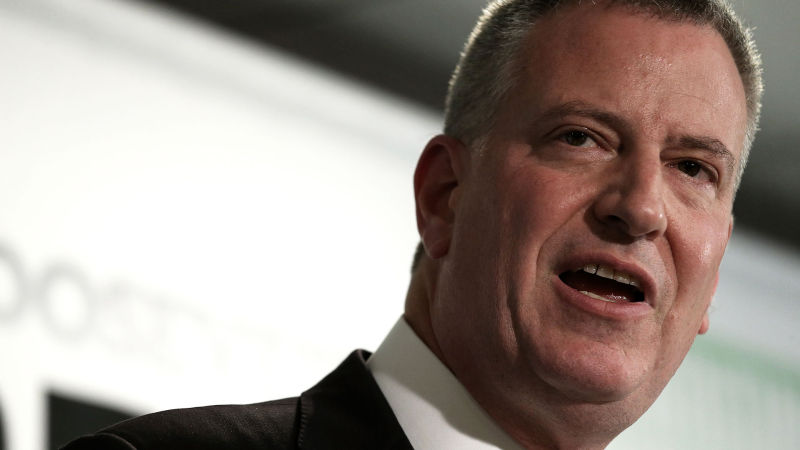New York City Mayor Bill de Blasio is visiting the Bay Area this week to promote his plan to combat income inequality with a $15 federal minimum wage and paid family leave. The mayor joins us in the studio to talk about his economic plan, and about police relations with communities of color and the Black Lives Matter movement.
On Housing
"What we've tried to do in New York City is change the rules of engagement with the real estate development community. We have the most aggressive affordable housing plan anywhere in the country. We are going to build and preserve 200,000 units of housing, that's enough for almost half a million people. We're doing that over the next decade. And the central way we're doing that first, of course, we're devoting a huge amount of our city's capital dollars towards that process but we're also driving a much harder bargain with developers. And I've been very blunt about this fact, I'm someone who believes in urban areas, you do need more height and density. We're an increasingly urbanized society, we should not be afraid to embrace height and density in the right places in the right way.”
On the Sharing Economy
"I think that the specific question of a sharing economy obviously brings both very positive realities and huge challenges and we have to find the balance point. I think people are working on that all over the country and around the world. Everything from, in the case of an AirBnB, making sure that the units that people use for their stays are safe and secure for the people who live in the same building, who are the permanent residents of those buildings, to issues like insurance to issues like taxation and, obviously, protecting the affordable housing stock of our city is a big issue."
On Eric Garner and the New York City Police Department
"I think that case and many others have taught us why it is so important to change the relationship between police and community. We have instituted a series of reforms that we believe will be transcendent. The re-training of our entire police force in how to deescalate situations of conflict and minimize use of force whenever possible. … What's happened on our watch, and the credit goes to the men and women of the NYPD, is that crime has continued to go down in most areas, not all, but in most areas, while we have drawn police and community closer. So reforms like the retraining, reforms like the beginning of body cameras, a stronger civilian complaint review process, are all helping. Obviously, the reduction of the stop and frisk policy and in low-level marijuana arrests, all of these pieces are helping. Here's a powerful statistic. We have 25 percent fewer complaints about the police today than we did a year ago. Something's changing for the better in New York City but we have, obviously, a long way to go."
